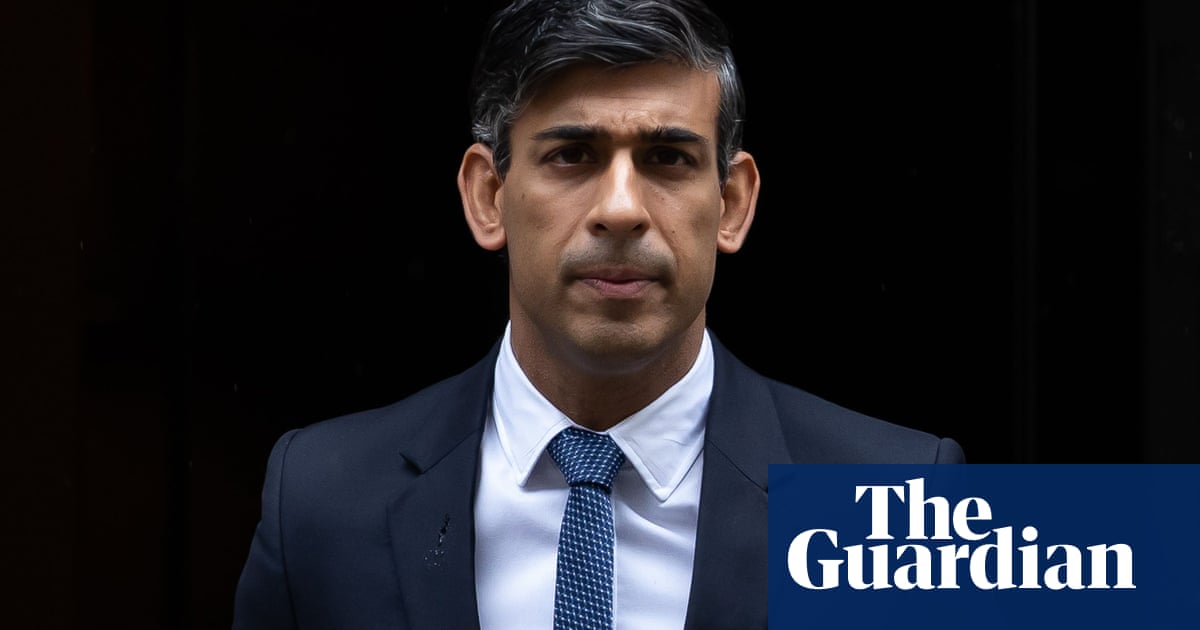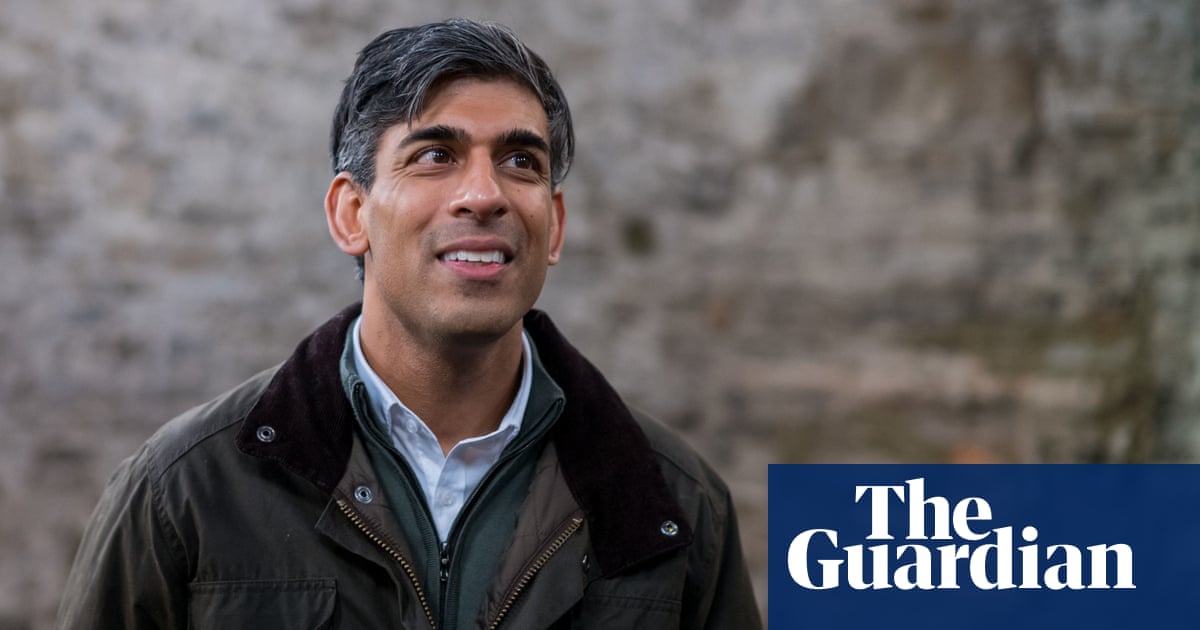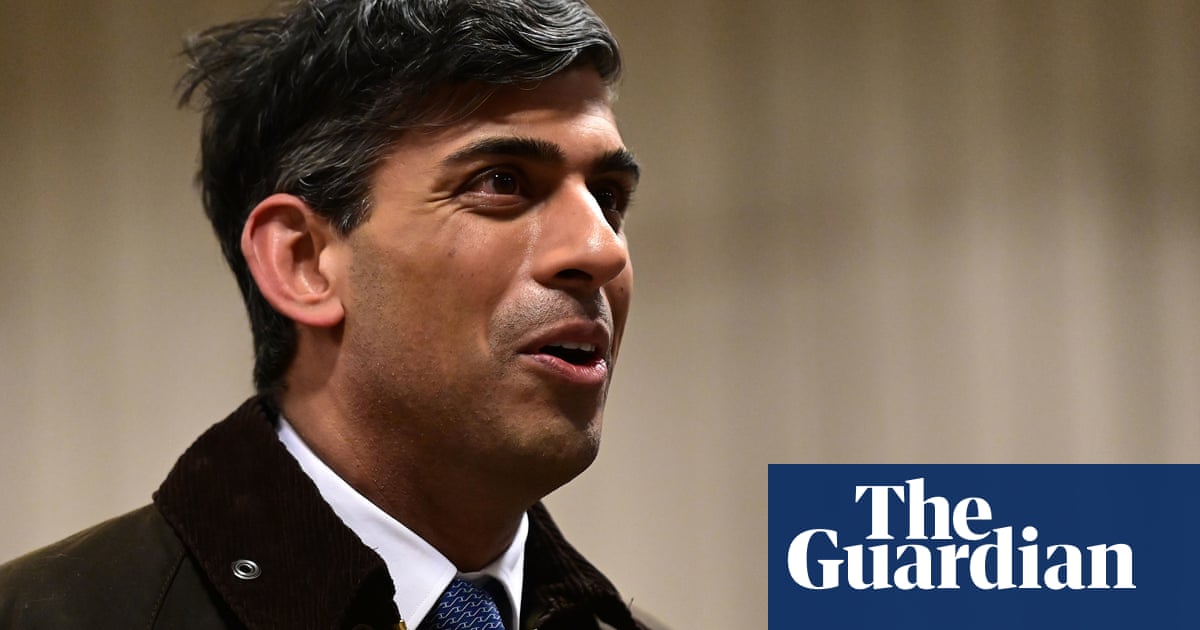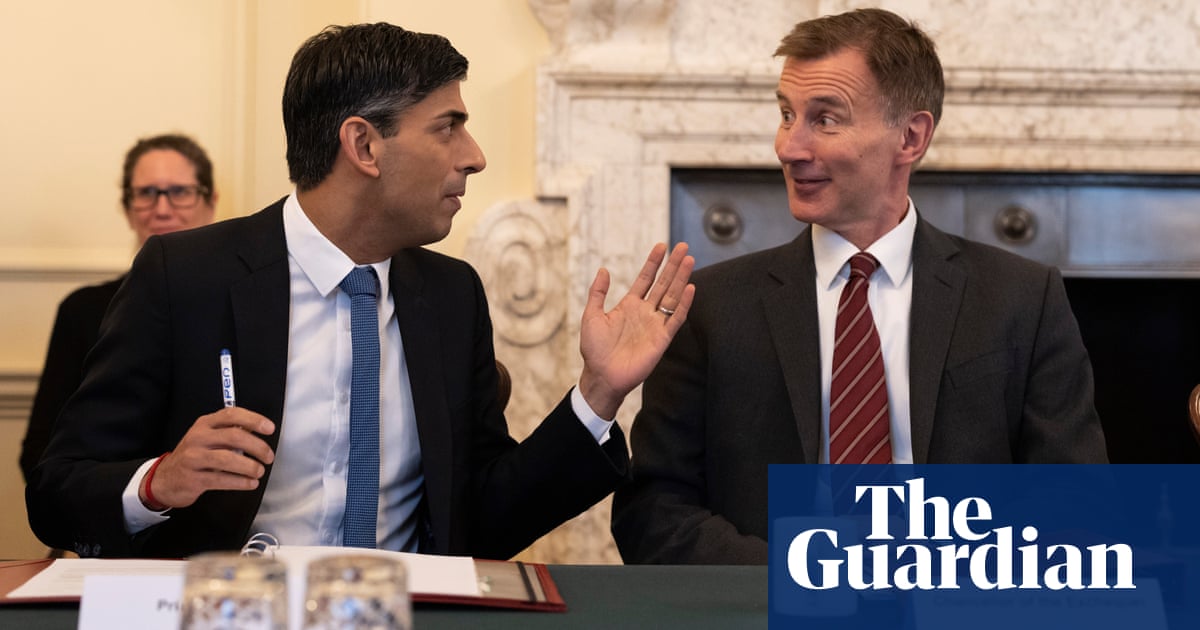
Rishi Sunak has seized on the Bank of England’s historic half-point rate rise to claim that Liz Truss’s plan for unfunded tax cuts would “make everyone poorer”.
The Bank’s gloomy forecasts, published alongside the rate decision, underline the scale of the challenge facing the next prime minister, with the economy projected to plunge into a prolonged recession by the end of the year.
Despite the dire economic outlook, the Guardian has learned the chancellor, Nadhim Zahawi, is away from Westminster, as the caretaker government takes a back seat while the leadership contest rages.
Zahawi was said to be working remotely from a family holiday.
In a statement, the chancellor said: “There is no such thing as a holiday and not working. I never had that in the private sector, nor in government. Ask any entrepreneur and they can tell you that.”
He added: “Millions of us dream about getting away with our families, but the privilege and responsibility of public service means that you never get to switch off, that’s why I have had calls and briefings every day and continue to do so.” The prime minister is currently on holiday.
Zahawi put out a written statement on the Bank’s announcement and is holding meetings with its governor, Andrew Bailey, later on Thursday and the Treasury’s chief economist.
Sunak, the underdog in the leadership race, has repeatedly said throughout the contest that he would wait until inflation was under control, before embarking on a tax-cutting spree.
By contrast, Truss has promised £30bn worth of tax cuts, which Sunak has claimed would push up borrowing and boost inflation.
“The Bank has acted today and it is imperative that any future government grips inflation, not exacerbates it,” he said.
“Increasing borrowing will put upward pressure on interest rates, which will mean increased payments on people’s mortgages. It will also make high inflation and high prices last for longer, making everyone poorer.”
Truss has cited the rightwing economist Patrick Minford to support her argument. As he stepped up his attack on her approach, Sunak tweeted a link to a ready reckoner showing the cost to mortgage borrowers, if interest rates rose to 7%, as Minford has said they might have to.
Advertisement
Truss said the rate rise “underlines the need for the bold economic plan that I am advocating”.
She promised an emergency budget to “kickstart my plan to get our economy growing and offer immediate help to people struggling with their bills” though she has so far proposed few measures to deal with the cost of living, aside from suspending the green levies on energy bills, and reversing recent tax rises.
Earlier, Truss supporter Suella Braverman said that if the foreign secretary became prime minister, she would review whether the Bank’s mandate was “fit for purpose” and examine its “exclusionary independence on interest rates”.
Braverman, the attorney general, told Sky News the Tory leadership frontrunner would look again at the Bank’s powers. “Interest rates should have been raised a long time ago and the Bank of England has been too slow in this regard,” she said.
She added: “Liz Truss has made clear that she wants to review the mandate that the Bank of England has, so that’s going to be looking in detail at exactly what the Bank of England does and see whether it’s actually fit for purpose in terms of its entire exclusionary independence over interest rates.”
Truss told a Conservative hustings on Wednesday night she would alter the Bank’s mandate because of the changing economic picture. “The best way of dealing with inflation is monetary policy, and what I have said is I want to change the Bank of England’s mandate to make sure in the future it matches some of the most effective central banks in the world at controlling inflation.
“The last time the mandate was looked at was in 1997 under Gordon Brown. Things are very, very different now.”
Mel Stride, the chair of the Treasury select committee and a Sunak supporter, said it would be dangerous to cut taxes this autumn. “What we must do now is avoid stoking the inflation and making the problem even worse,” he said. “One of the ways you can make the problem very significantly worse is by coming forward with large-scale, tens of billions of pounds’ worth, of unfunded tax cuts.”
He added: “The big decision, fiscally, here is around tax. You have to do it in a measured way and at the right time but not start coming forward with tens of billions of unfunded tax cuts right now. I think that would be really quite dangerous.”












